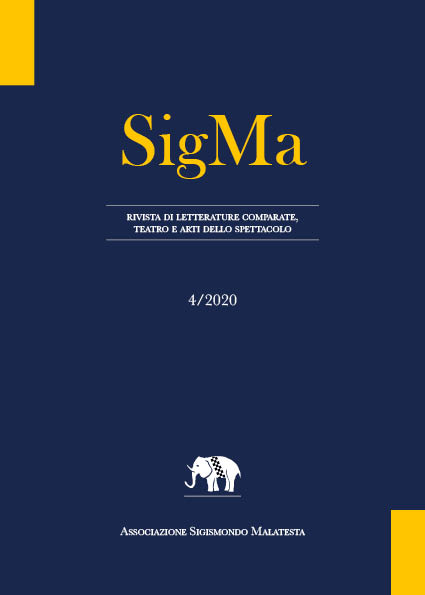Giordano Bruno and “De gli eroici furori”: the Amorous Hunt between Petrarch and the “Song of Songs”
Abstract
De gli eroici furori is the culmination of the unitary philosophical work formed by the six Italian dialogues published by Bruno in London in 1584-85. The article presents the fundamental components of the restoration of the true imagen of the universe and the ethical, political and religious consequences that follow from it. The Furori present, under the figure of Acteon, the exceptional human personality that leads to the culmination of philosophy in the form of the free persecution of divinity as an object of amorous hunt through the knowledge of its manifestation in infinite nature (Diana). This philosophical hunt for divinity is described by the commentary on a loving songbook by Bruno himself (named the ‘Furious’) written in the usual terms of Petrarch’s lyric, but pretending to carry out the same ‘natural’ and ‘physical’ intention as Solomon’s Song of Songs. At the same time Bruno strongly criticizes Petrarch’s lyric as an ignoble displacement to a finite object of energy and effort that must be directed to the divine object. This does not, however, prevent Bruno from recognizing that he also attends to the hunting of the finite love object with the purely natural purpose and conducive to sexual union, which is that of human love.
Downloads
SigMa Journal is an open access, online publication, with licence:
|
|
CCPL Creative Commons Attribution |
The author retains the copyright of his work whilst granting anyone the possibility “to reproduce, distribute, publicly communicate, publicly exhibit, display, perform and recite the work”, provided that the author and the title of the journal are cited correctly. When submitting the text for publication the author is furthermore required to declare that the contents and the structure of the work are original and that it does not by any means compromise the rights of third parties nor the obligations connected to the safeguard of the moral and economic rights of other authors or other right holders, both for texts, images, photographs, tables, as well as for other parts which compose the contribution. The author furthermore declares that he/she is conscious of the sanctions prescribed by the penal code and by the Italian Criminal and Special Laws for false documents and the use false documents, and that therefore Reti Medievali is not liable to responsibilities of any nature, civil, administrative or penal, and that the author agrees to indemnify and hold Reti Medievali harmless from all requests and claims by third parties.

